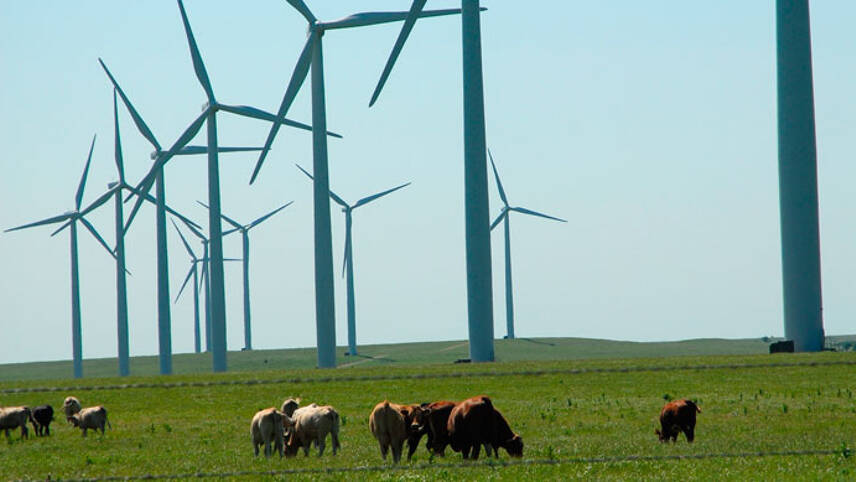Standard content for Members only
To continue reading this article, please login to your Utility Week account, Start 14 day trial or Become a member.
If your organisation already has a corporate membership and you haven’t activated it simply follow the register link below. Check here.

Newly appointed energy secretary Amber Rudd will enforce the Conservative Party’s manifesto pledge to curb the spread of onshore wind through new legislation set to take effect from May next year.
Rudd intends to push forward with plans enforce the Tory policy as a matter of priority in her first weeks as head of the Department of Energy and Climate Change by amending current planning rules to give greater power to local communities, while subsidies for new wind farms will be banned altogether.
In her first major interview since taking up the post Rudd told the Sunday Times: “I’ve already got my team working on it. That’s going to be one of the first things we’re going to do.”
The cuts are not expected to affect onshore wind projects already in planning which is estimated at almost 7GW according to analysts at RBC Capital.
“Wording is everything. If ‘planned projects’ are not affected, it is reasonable to presume the 6.9 GW of new onshore wind developments currently in advanced stages of the planning process will be able to receive public subsidy,” an analyst note said Monday morning.
But even those projects which are able to receive subsidy, or operate without one, will need to have the full support of local communities in order to move forward.
Although local planning authorities have a strong say in whether smaller wind projects move ahead, under the current planning system windfarms larger than 50MW in capacity apply for consent at a national level, and are approved or declined by the secretary of state.
Rudd’s planned change to the legislation aims to “put local people back in charge” by requiring all projects to have local consent.
“We can’t have them on a scale in areas where people don’t want them,” Rudd told the paper.
“I’ve put a rocket under the team to get it done, putting the local community back in charge. We’re looking to do the primary legislation as soon as we can.
“Local planning authorities combined with no new subsidies will put local people in charge … there will be a much more accountable democratic process,” she said.
But the new legislation is set to ring alarm bells for investors, trade body RenewableUK said.
“With the Paris Climate Conference approaching we need to make sure all our options are available, and as onshore wind is the least cost way to decarbonise our electricity system, so any early restriction could lead to higher bills for consumers,” RenewableUK’s deputy chief executive Maf Smith said.
“This is a sector with strong public support, and any blocking based on the views of a vociferous minority will ring alarm bells for all infrastructure investors,” he added.
Please login or Register to leave a comment.